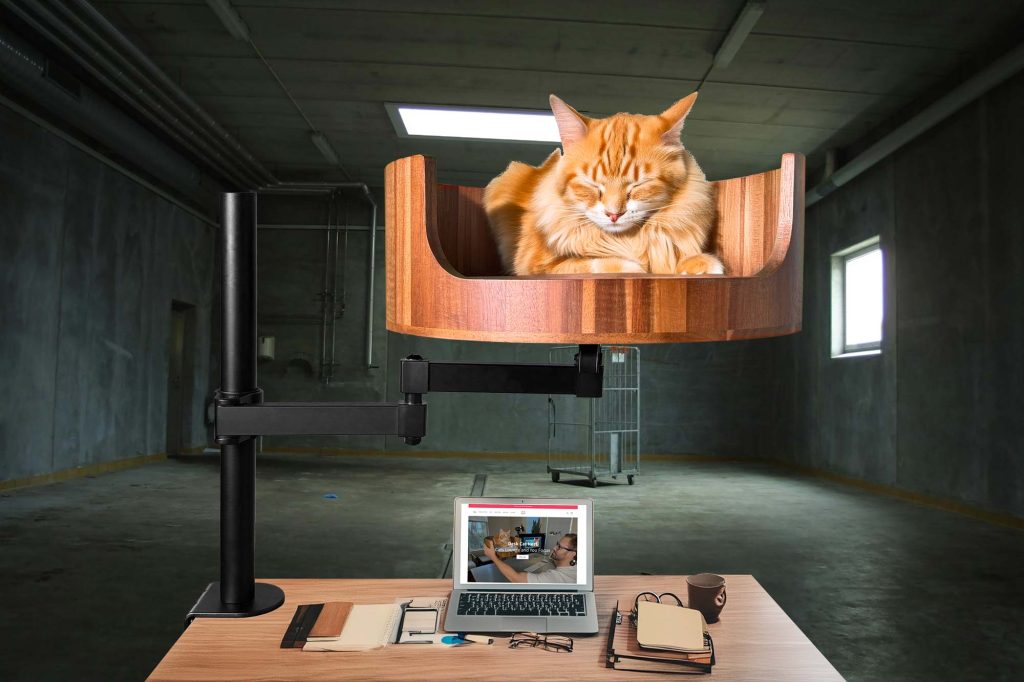Have you ever wondered how old your cat is in human years? Understanding the differences between cat age and human age can help you better care for your furry feline friend. In this article, we will explore the concept of cat age compared to humans, debunking common myths and shedding light on the true implications of cat aging.
Desk Cat Nest is a leading source of information on all things feline, providing expert insights and tips for cat owners worldwide. From explaining the science behind cat aging to offering practical advice on how to best meet your cat’s changing needs as they grow older, this article will cover a wide range of topics related to understanding the unique aging process of our beloved pets. Whether you’re a seasoned cat owner or a newcomer to the world of feline companionship, this article will equip you with the knowledge you need to ensure a long and happy life for your cat.
1. Cats age more rapidly in their early years, with the first year of a cat’s life equivalent to around 15 human years.
2. After the first year, a cat’s aging process slows down, with each subsequent year equating to about four human years.
3. Factors such as breed, size, and overall health can influence a cat’s aging process and lifespan.
4. Understanding a cat’s age in human years can help owners provide appropriate care, such as adjusting diet, exercise, and veterinary check-ups.
5. By recognizing the differences in aging between cats and humans, owners can cultivate stronger bonds and ensure their feline companions live long, healthy lives.
## Understanding Cat Age in Human Years
Cats age at a different rate compared to humans, with their first year of life equivalent to around 15 human years. After the first year, cats age about four human years for every cat year. This means that a two-year-old cat would be around 24 in human years, and a six-year-old cat would be equivalent to a 40-year-old human. Understanding this aging process is essential for providing appropriate care and meeting the needs of your feline companion at every life stage.
## Factors Affecting Cat Age
Several factors can influence how cats age compared to humans. These factors include breed, size, diet, overall health, and genetics. For instance, smaller cat breeds tend to live longer than larger breeds, with some reaching up to 20 years or more. Similarly, indoor cats usually have a longer lifespan compared to outdoor cats due to reduced risks of accidents, diseases, and parasites. By considering these factors, you can better understand your cat’s age in relation to human years and take proactive measures to ensure their well-being.
## Recognizing Aging Signs in Your Cat
As cats age, they may exhibit various signs that indicate the progression of time in human years. Some common signs of aging in cats include decreased activity levels, changes in appetite or weight, dental issues, vision or hearing impairment, and increased stiffness or mobility issues. By being alert to these signs and scheduling regular check-ups with your veterinarian, you can address age-related concerns early and provide your cat with the appropriate care and support they need in their golden years.
## Providing Senior Care for Your Aging Cat
Senior cats require special care and attention to ensure they remain healthy, comfortable, and happy as they age in human years. This may involve providing a senior-friendly diet, regular exercise opportunities, comfortable resting areas, and veterinary check-ups to monitor their health. Additionally, you may need to make adjustments to your home environment to accommodate their changing needs, such as installing ramps or providing litter boxes with lower sides. By understanding your cat’s age in relation to human years and proactively addressing their senior care needs, you can help your feline companion enjoy a high quality of life well into their golden years.
Frequently Asked Questions
How does the Desk Cat Nest help in understanding a cat’s age in comparison to humans?
The Desk Cat Nest provides a cozy and comfortable space for your cat to rest and relax, allowing you to observe their behavior and physical appearance more closely over time. This can help you recognize subtle signs of aging and better understand how your cat’s age correlates to human years.
What is the average lifespan of a cat compared to a human?
On average, a cat’s lifespan is around 13-20 years, whereas a human’s lifespan is much longer, typically between 70-80 years. This means that cats age more rapidly in comparison to humans, making it important to monitor their health and well-being regularly.
How can I calculate my cat’s age in human years?
A common method to approximate a cat’s age in human years is to multiply their age in cat years by 4 and add 16. However, this is just an estimation and may not be entirely accurate. Consulting with a veterinarian for a more precise calculation is recommended.
What are some signs of aging in cats that I should look out for?
Some common signs of aging in cats include a decrease in activity levels, changes in appetite, dental issues, arthritis, and weight loss. Keeping a close eye on your cat’s behavior and consulting with a vet can help you detect these signs early and provide proper care.
In conclusion, providing your cat with a comfortable and safe sleeping spot like a Desk Cat Bed can help to ensure their overall well-being and longevity. By offering a designated space for your feline friend to rest, you can help reduce stress and anxiety, which can have positive effects on their health and ultimately their lifespan. The Desk Cat Bed offers a cozy and secure environment for your cat to relax and sleep, promoting better sleep quality and overall comfort. Investing in a Desk Cat Bed for your furry companion is a valuable choice that can contribute to their happiness and longevity in the long run.


